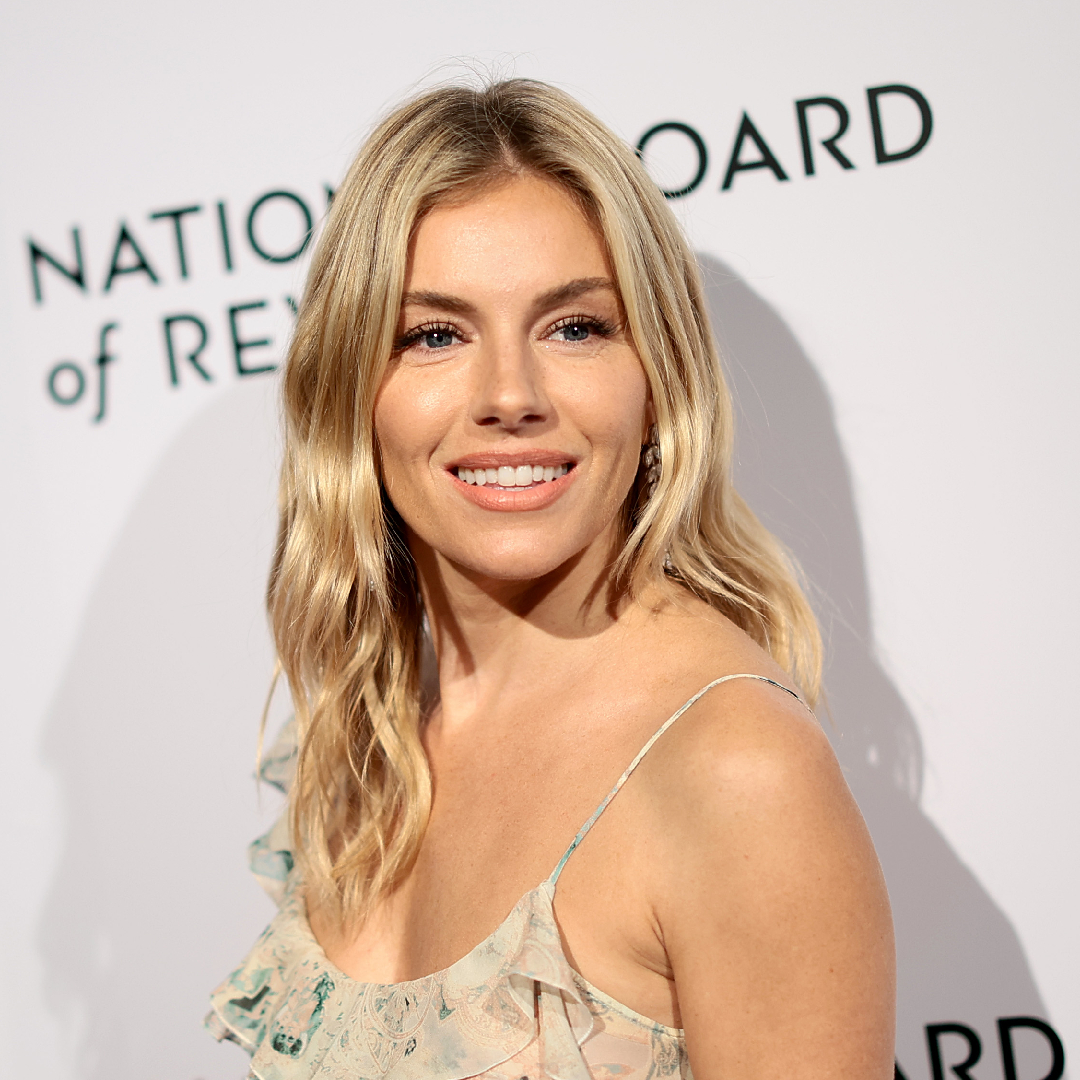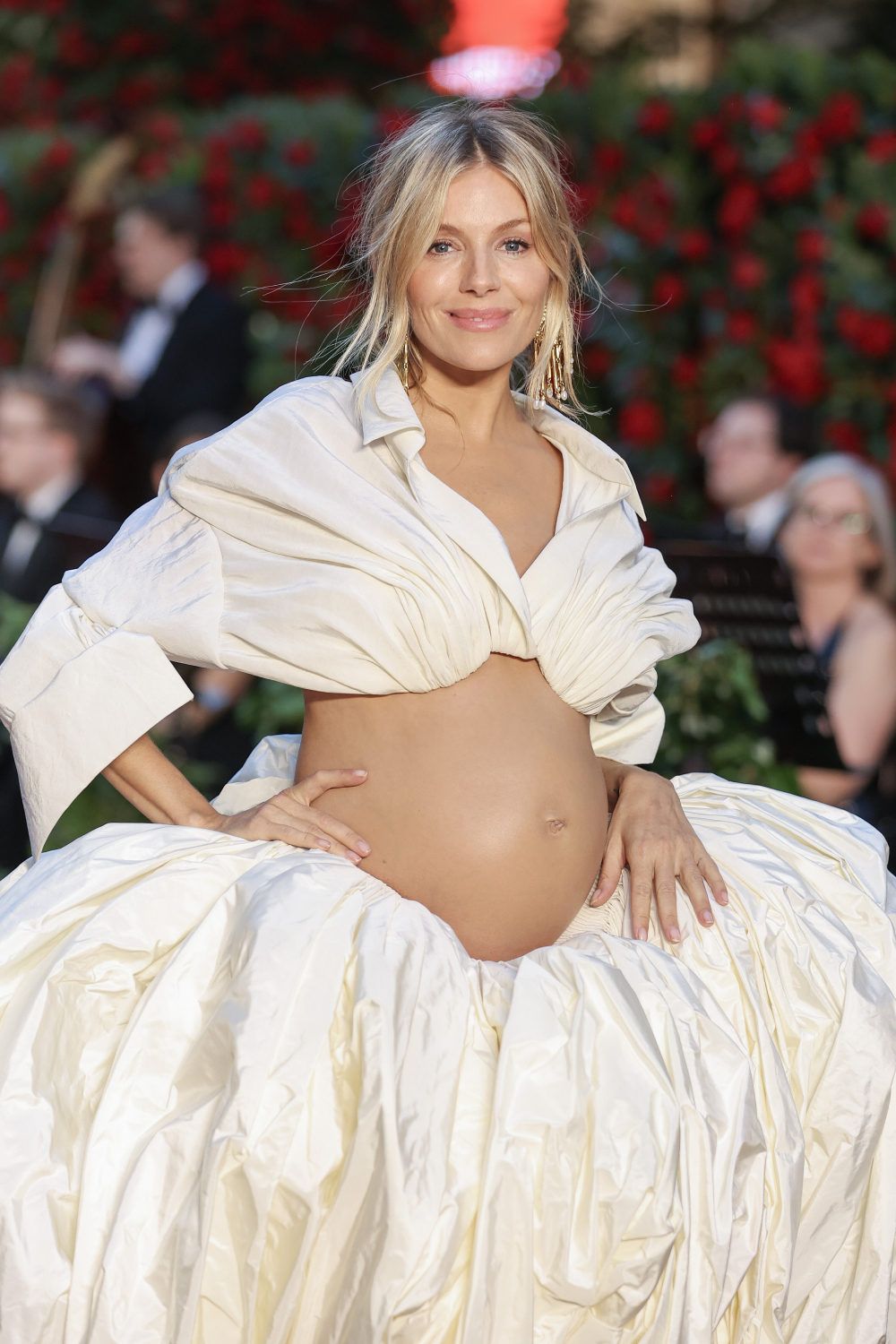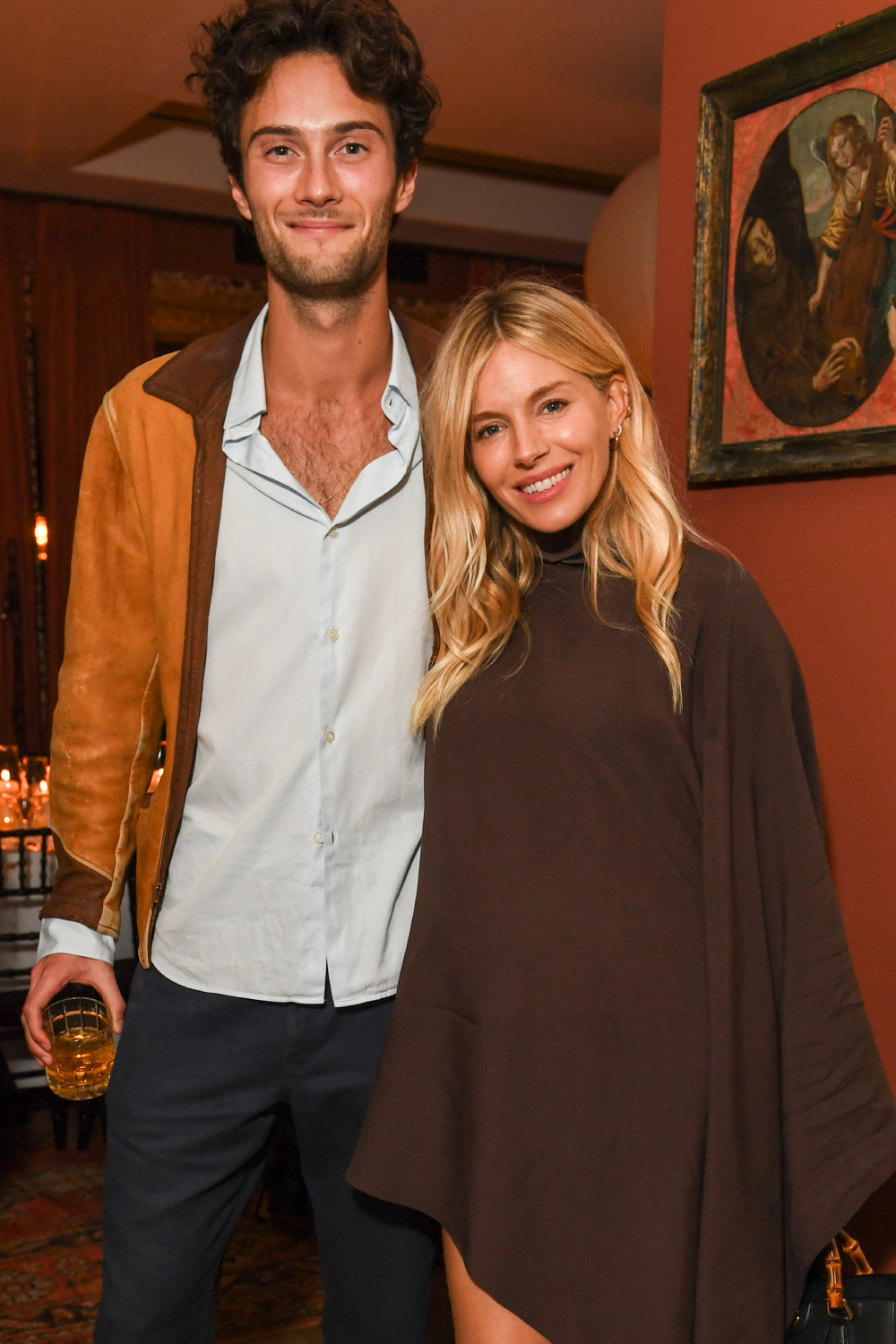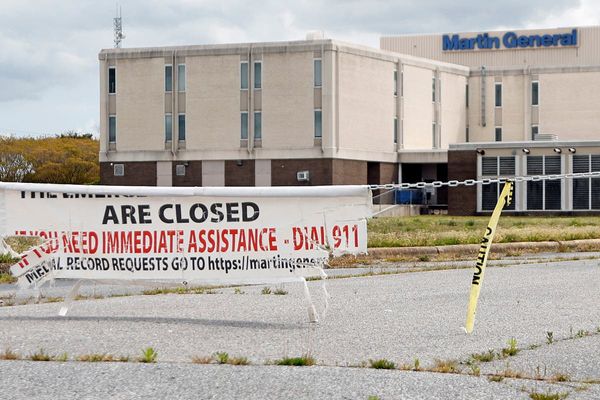
Sienna Miller is ready for the jokes about her pregnancy - but she'd rather you didn't make them. The fact that the actress knows the criticism and jibes will come is a stark truth when it comes to our attitude towards motherhood in 2023. "I’d love to get to a point where I didn’t feel the need to make a joke of my being older and having a baby, to show I’m in on the joke," she told Vogue in a recent interview, before adding: "I just find that judgment so one-sided. And it's so sad."
Sienna announced the news in Septmeber that she's expecting her first child with partner Oli Green. This is Sienna's second child; her first-born, Marlow, who she shares with former partner Tom Sturridge, is now 11 years old.
While this is undoutably a joyful time for the Notes on a Scandal star, Sienna makes it clear during the interview that, at least in her experience, we're still living in times where mothers are judged harshly on their choices. Just recently, a video went viral on fertility and pregnancy app Peanut that slammed a new manual telling women the 'right' way to parent. The mood echoes Sienna's sentiments; women are tired of hearing about how to be the 'right' kind of mother. The 'right' age with 'right' set-up and the 'right' approach. Some women viewing the video went as far as to say the pressure to parent the 'right' way left them feeling a loss of identity.
Sienna also called out the "double standards" women face when it comes to attitudes around parenting. She continued: “I think people are comfortable with a way of living that has existed for many years, which is very misogynistic and patriarchal. Like me being the older woman in a partnership with a younger person or being pregnant over 40... that that’s irresponsible and 'poor child'. It’s such double standards." The actor then added: "It's so unquestioned in people's minds. It's just a trite, easy target. But it's absurd."

The fact is, the number of women giving birth in their forties is rising. For many of us, the timeline we've had so firmly etched into our consciousness from childhood doesn't quite work. It's not quite as simple as 'Oh she's a career girl' as the assumption bestowed on those who don't choose (or perhaps have the option to) start a family in their 20s and 30s. There is a myriad of reasons why pregnancy might come later in life that, yes, include career goals, but also, perhaps, wanting to see the world, or getting on the property ladder. And then there are fertility issues, financial restrictions and simply not meeting the right person at the right time that add to the equation. Another important factor is that many women are just simply not ready. And that's as good a reason as any.
Pregnancies post 40 are less common, but entirely possible. However, the discourse around them is always depressingly similar. The furore around Rachel Weisz's pregnancy aged 48 was so heated that the actor was branded 'dangerous' by social media users for conceiving in her late 40s. Yes, there are some risks involved. Pregnant women in their mid-30s and beyond generally have a higher risk of complications (it's important to caveat there are other mitigating factors for any health risks and each case is entirely individual). But weighing up these risks is a deeply personal experience, rather than up for public debate.
"Ageism in itself is one of the areas of discrimination that still seeps into public discourse," Georgina Sturmer, a psychotherapist specialising in women's issues, tells us. "It somehow seems acceptable to comment on someone’s age when it wouldn’t seem acceptable to comment on other areas of difference.
"Until very recently, it was common for a pregnant woman over the age of 35 to be referred to as a ‘geriatric pregnancy’," Sturmer continues. "This has now shifted in favour of the term ‘advanced maternal age’. But either way, it conjures up a sense of a mother who is more tired, frail, old-fashioned, and at risk, than a younger version of herself."
And it's not just age that seems to pique public interest when it comes to motherhood. "There’s something about pregnancy that brings a woman’s body - and other people’s opinions - into the public domain," Sturmer continues. When photographs of Meghan Markle emerged of her cradling her pregnancy bump, the tabloids deemed her 'obsessed' with her unborn child openly body shaming her, with headlines that invited 'experts' to issue further jibes. This cruel treatment by the press was one of the reasons Meghan later cited for her mental health struggles.
For Sienna, another child was something she'd wanted but hadn't previously been in the right place for. "We’ve talked about it for years. She just needed the right person, and I really see that in him," longtime pal Emily Blunt said (via The Telegraph). The pregnancy was unplanned, with Sienna explaining: "I was very fortunate. I wasn’t necessarily trying to get pregnant. This happened as a total surprise and biologically was something I was able to do."
As in Sienna's case, imposing a timeline that is governed by how many candles there are on our cake is problematic. It doesn't take into consideration the huge amount of variables that can create the 'right' time. "There are so many different elements to a woman’s journey to becoming a mother," Sturmer explains. "And that’s assuming that when someone is ready, they are able to become pregnant as soon as they wish to do so. Fertility can be a long and complex journey for many of us, and fraught with difficulties.

"If we try to stick to a prescribed timeline, then we risk missing out on the opportunities that life has to offer. We also risk ’settling’ for a situation that is less than ideal, perhaps a relationship that isn’t quite right, to meet social expectations.
"It’s also important to remember that so much about reproductive health, and reproductive loss, remains a taboo subject. So when we talk about a timeline for women wanting to be mothers, we often fail to take into account the heavy physical and emotional toll of the reproductive cycle. Of miscarriages and fertility difficulties."
As for Sienna, this time around she feels much more prepared for motherhood than she did at 29. "This time I have expectations!" she quipped, before adding: "I just hadn't given it the thought it...I guess you can't prepare for it. In my mind this is going to be the easiest, sweetest, cosiest... because I've already forgotten the reality!"






